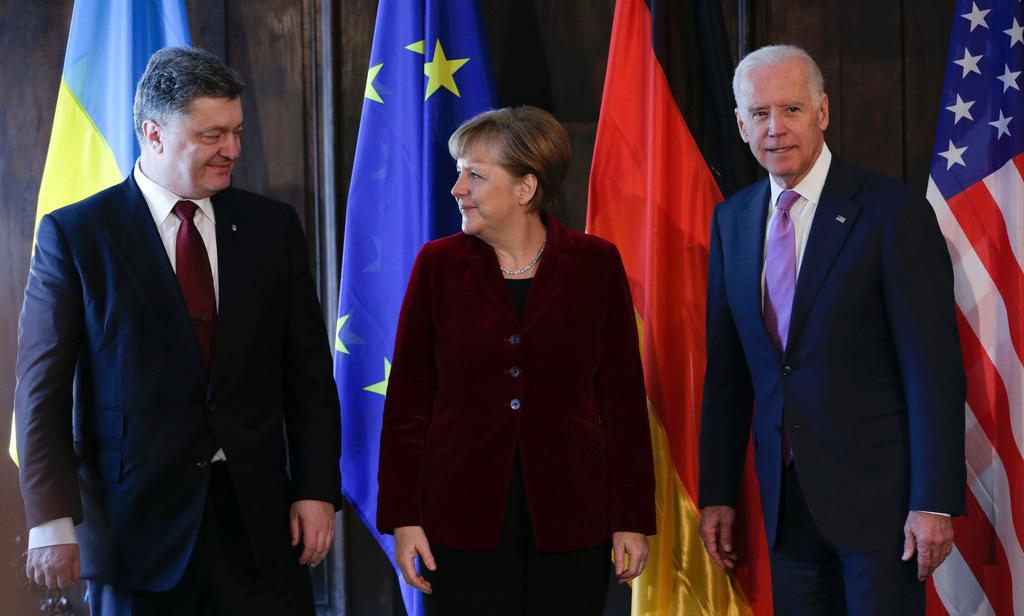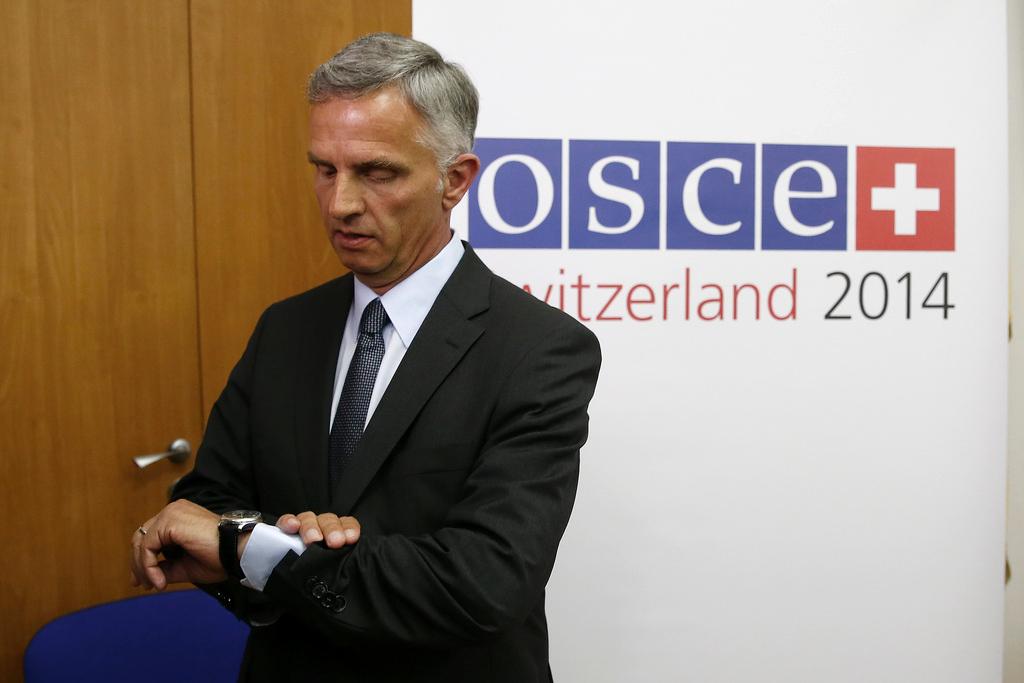Burkhalter promotes OSCE at Munich security talks

At a security conference in Munich to discuss the Ukraine crisis, Swiss Foreign Minister Didier Burkhalter called for the Organization for Security and Co-operation in Europe (OSCE) to have a seat at the table in ongoing peace talks.
“The OSCE requires our full and continuing support for its engagement in and around Ukraine,” Burkhalter said. “This is very demanding work – and the OSCE needs the support of all participating States if it is to successfully respond to the many challenges.”
Specifically, Burkhalter called for other nations’ support of Swiss Ambassador Heidi Tagliavini, who has been representing the OSCE as a member of the Trilateral Contact Group which drew up a fragile peace agreement with Ukranian and Russian representatives in Minsk last September.
Although the cease-fire agreement has since been broken and violence in Ukraine has continued to erupt, Burkhalter called the contact group an essential part of the path to peace.
“We must do everything to return to the logic of de-escalation, and with its bridge-building role in the Trilateral Contact Group, the OSCE can help move the political process forward,” he said.
On Friday night in Munich, German Chancellor Angela Merkel, French President Francois Hollande and Russian President Vladimir Putin agreed to re-work the Minsk peace accord.
In his speech before world leaders gathered in Munich, Burkhalter also emphasised the importance of the OSCE’s Special Monitoring Mission (SMM) in Ukraine, which consists of civilian observers working “in a very precarious environment”.
“We need to provide the SMM with both the necessary security equipment and qualified staff with relevant experience, sometimes in very specific areas such as crater analysis,” Burkhalter said.
In an interview with Swiss Public Radio SRF, Burkhalter said the OSCE could not do much at the moment besides continuing to support the SMM, but he said he hopes that armed peacekeeping forces might be deployed as part of the mission in the future.
Finally, the Swiss Foreign Minister who headed the OSCE last year said in his speech that the OSCE’s potential should be maximised to fight terrorism and “prevent radicalisation,” also by working with young people. And, he said the security organisation should continue to use its role within Europe to work on sensitive cross-border trade issues.
“The OSCE is well suited to promote dialogue on the nexus between trade and security,” Burkhalter said. “It could also develop new kinds of economic confidence-building measures to rebuild trust and strengthen regional connectivity.”
Switzerland headed the OSCE last year and has since transferred that role to Serbia. However, the Swiss delegation continues to be part of the so-called Troika, which is made up of the current, former and next-serving OSCE heads.
The OSCE was the recipient of the Munich security conference’s Ewald von Kleist prize, which recognises exemplary contributions to peacekeeping and conflict resolution.
The high-stakes security conference has been dominated by the Ukraine topic, with world leaders including Russian President Vladimir Putin and Ukrainian Prime Minister Petro Poroschenko gathered until Sunday in an effort to broker a lasting cease-fire agreement.
Burkhalter also said on the radio that he views both sides’ lack of will to ratify such an agreement as the biggest hurdle facing negotiations.
“The biggest stumbling block is that neither side wants to make progress,” he said.

In compliance with the JTI standards
More: SWI swissinfo.ch certified by the Journalism Trust Initiative


You can find an overview of ongoing debates with our journalists here. Please join us!
If you want to start a conversation about a topic raised in this article or want to report factual errors, email us at english@swissinfo.ch.